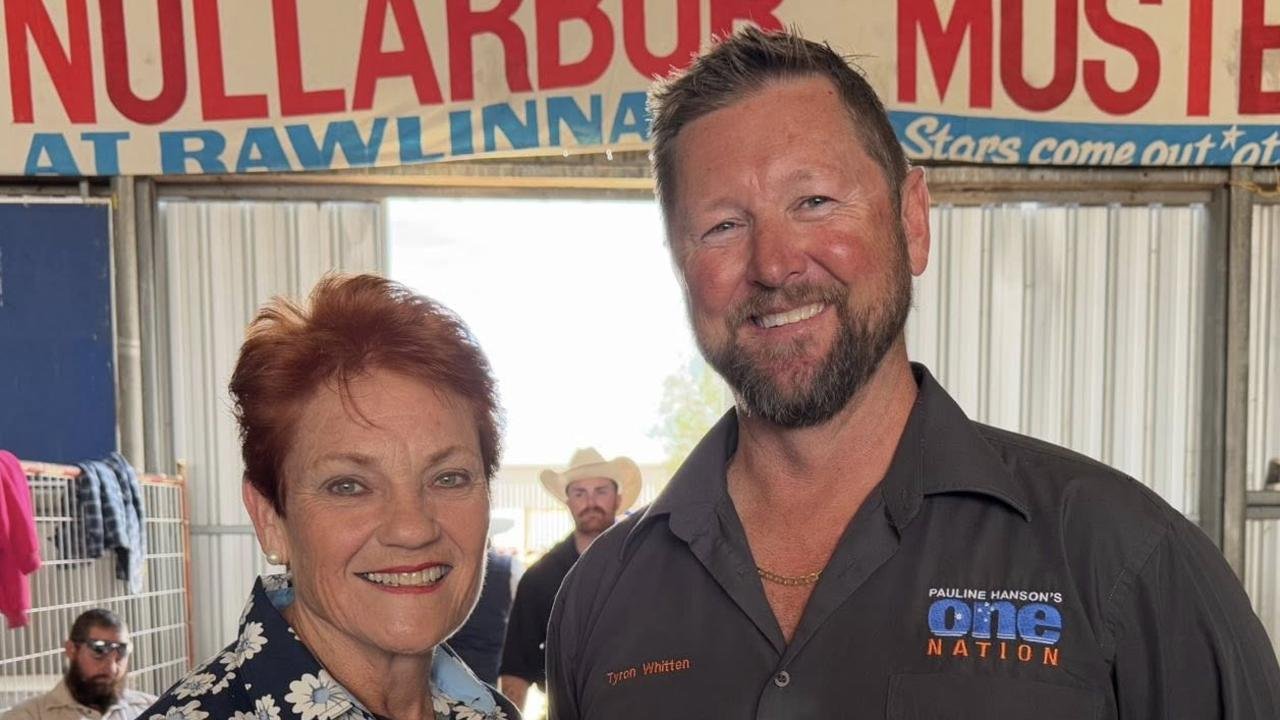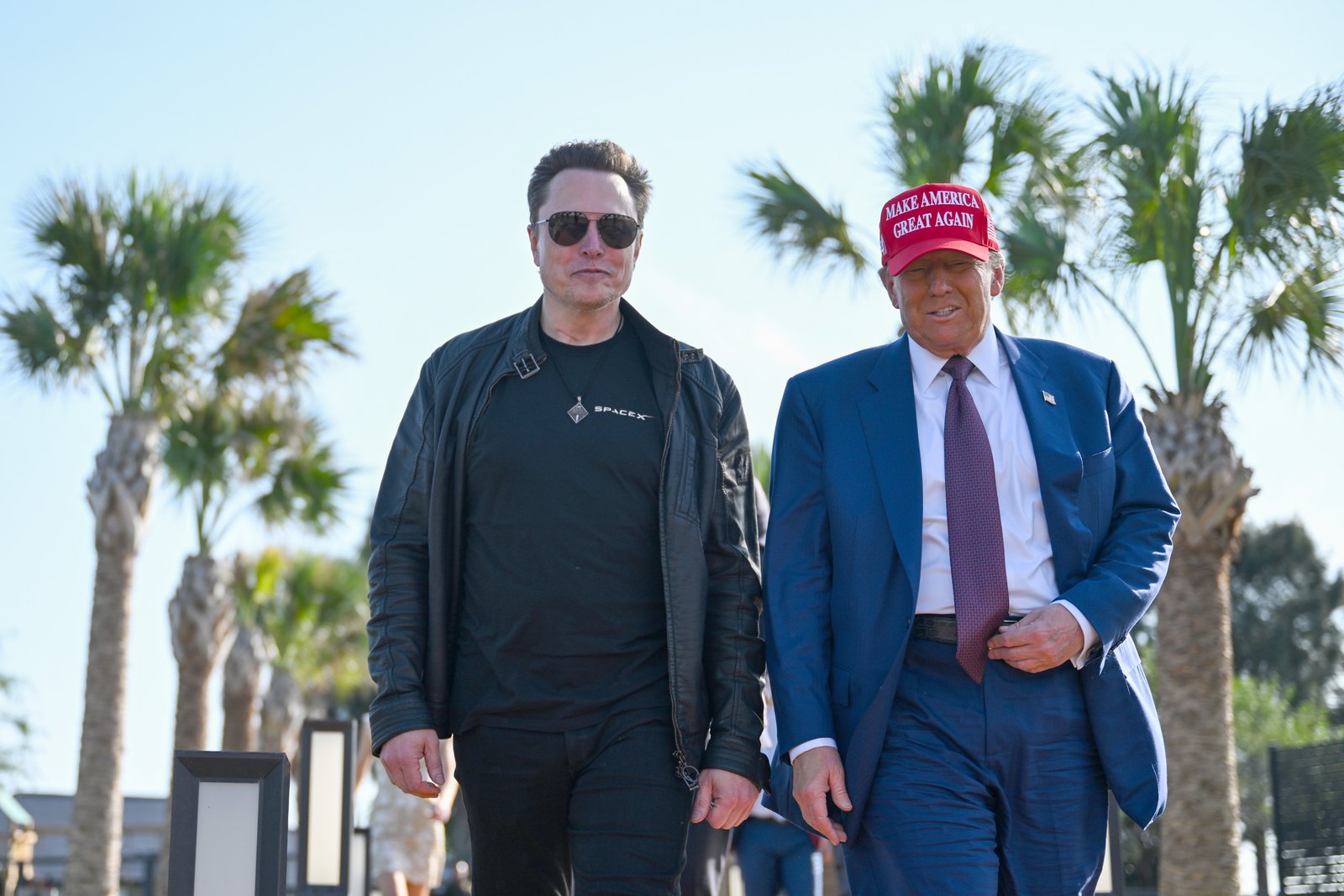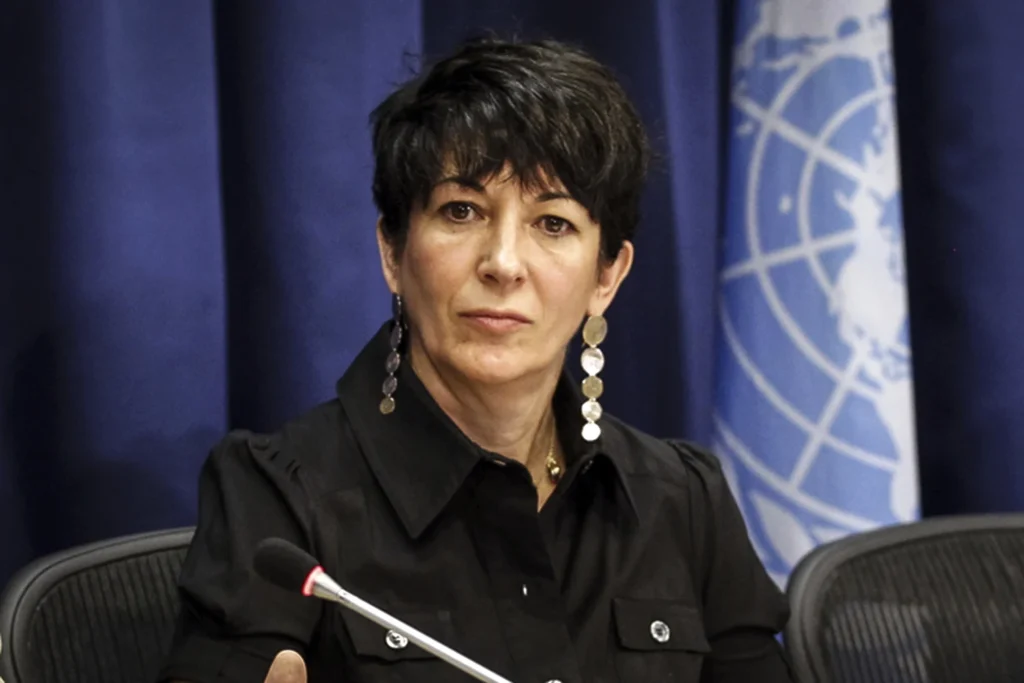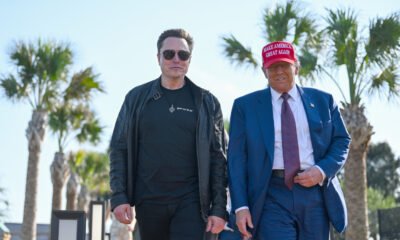Politics
Tyron Whitten’s Surprise Senate Win Gives One Nation a Historic Boost Beyond Queensland
In a major upset, One Nation secures its first-ever upper house seat outside Queensland as businessman Tyron Whitten clinches WA’s final Senate spot.

In a political twist few saw coming, Pauline Hanson’s One Nation party has expanded its Senate presence beyond its traditional stronghold of Queensland, marking a historic breakthrough with the election of Western Australian businessman Tyron Whitten.
The Australian Electoral Commission finalized the WA Senate results on Thursday, confirming Whitten’s win of the sixth and final Senate spot. The co-founder of civil construction firm Whittens, a company with a $180 million annual turnover and over 1,000 employees, will now represent One Nation in the federal upper house. This unexpected victory lifts One Nation’s Senate seat count from two to three, joining Malcolm Roberts and Pauline Hanson.
Whitten’s win is particularly noteworthy as it marks One Nation’s first-ever Senate seat gain outside Queensland during a half-Senate election. It came as Malcolm Roberts was also re-elected in Queensland, defeating former Liberal-National Party member Gerard Rennick, who had defected after being dropped from the party’s Senate ticket.
“One Nation is going to increase its Senate representation by 50 per cent,” Senator Roberts posted on X, celebrating the party’s electoral gains while calling attention to how close they came in Victoria and South Australia.
Whitten’s ascent reflects a growing dissatisfaction among certain voter bases with traditional party politics. Known for his strong nationalist stance, Whitten campaigned on policies favoring reduced immigration, a tougher national energy framework, and more scrutiny over foreign influence on domestic policy. “It’s time to put Australians first,” Whitten declared, citing pressure on infrastructure and the housing market as reasons to curb overseas arrivals.
He also invoked his grandfather’s military service to justify his decision to run for office under One Nation, stating that the values fought for in war must now be defended in Parliament. “One Nation holds the values that my grandfather went to war for,” Whitten said, promising to uphold those ideals in his senatorial role.
The Australian Electoral Officer for Western Australia, Anita Ratcliffe, confirmed the final distribution of preferences was conducted in full view of scrutineers, maintaining the integrity of the process. Whitten joins a Senate lineup from WA that includes Labor’s Ellie Whiteaker and Varun Ghosh, Liberals Slade Brockman and Matt O’Sullivan, and Greens senator Jordon Steele-John.
Social media responses from One Nation supporters hailed Whitten’s victory as a “well-deserved result for a passionate advocate of the people.” The party emphasized that he would serve as a strong voice for Western Australians and a critical check on what they describe as government overreach and globalist policymaking.
Labor, while still performing strongly in the national Senate landscape, was hoping to claim the final WA seat with candidate Deep Singh, a former United Workers Union organizer. However, the final preference distribution gave Whitten the edge.
Elsewhere in the Senate, Labor gained an additional Queensland seat, bringing its tally to 28, putting it within striking distance of passing legislation with the support of the Greens’ 11 senators. The Coalition is projected to hold 27 Senate spots, making future negotiations within the chamber increasingly complex.
As counting continues in closely watched contests such as the Bradfield lower house seat in Sydney—where the Liberal candidate leads by just seven votes—Whitten’s surprise win underscores the ever-evolving nature of Australia’s political landscape. With his swearing-in, One Nation not only gains ground numerically but also symbolically, signaling broader national appeal and a possible reshaping of Senate debates in the years ahead.
Health
Salmonella Scare in Eggs Sparks Multi State Health Alert and Massive Recall
Over 1.7 million eggs recalled across nine states as 79 people fall sick and 21 are hospitalized in salmonella outbreak

A widespread salmonella outbreak linked to recalled eggs has raised serious public health concerns across the United States. According to the Centers for Disease Control and Prevention (CDC), at least 79 individuals in seven states have fallen ill, with 21 hospitalizations reported as a direct result of exposure to contaminated eggs.
The August Egg Company, at the heart of the recall, has voluntarily pulled back approximately 1.7 million brown cage-free and organic eggs distributed between February 3 and May 15, 2025. These eggs were sold in major grocery chains including Walmart, Save Mart, Safeway, Smart & Final, and Food 4 Less, spanning across states like California, Nevada, Illinois, Indiana, Nebraska, New Mexico, Washington, Arizona, and Wyoming.
The sell-by dates on the affected eggs range from March 4 to June 19, 2025, and consumers are being strongly urged to check their fridges. The CDC recommends disposing of the recalled eggs immediately or returning them to the store of purchase. Furthermore, any surfaces or utensils that may have come into contact with these eggs should be thoroughly disinfected.
What Is Salmonella and Why Is It Dangerous?
Salmonella is a bacteria that can cause severe foodborne illness. According to the FDA, symptoms typically begin 12 to 72 hours after infection and include fever, diarrhea, vomiting, abdominal cramps, and dehydration. While most people recover within a week, the infection can become severe or even fatal in young children, older adults, pregnant women, and those with weakened immune systems.
The bacterium can also lead to bloodstream infections if not treated in time, and in rare cases, death. In light of the current outbreak, the CDC has stressed the importance of safe egg handling practices, especially as summer gatherings and picnics increase the risk of improper storage and preparation.
Keeping Eggs Safe – What You Can Do
To reduce the risk of foodborne illness, consumers are advised to:
- Buy only refrigerated eggs and inspect for cracks or dirt before purchasing.
- Refrigerate eggs at or below 40°F (4°C) immediately after bringing them home.
- Cook eggs until both the white and yolk are firm, and avoid runny preparations.
- Use pasteurized eggs when making recipes that call for raw or undercooked eggs (e.g., Caesar dressing, homemade ice cream).
- Wash hands, surfaces, and utensils thoroughly with soap and hot water after handling raw eggs.
- Use insulated coolers and ice packs when transporting egg-based dishes outdoors.
This incident also highlights the broader issue of rising food recalls in 2025, ranging from bacterial contamination to allergen mislabeling. As food sensitivities and immune vulnerabilities increase in the population, both awareness and prevention are key.
Politics
Elon vs Trump Feud Threatens $48B in Space Contracts and Careers
From Musk’s contract empire to Trump’s threats, their clash could backfire—but the US isn’t ready for a space blackout

Elon Musk, the world’s richest person and CEO of SpaceX and Tesla, openly criticized President Trump’s $2.4 trillion tax-and-spending bill as a “disgusting abomination.” Trump retaliated by threatening to terminate federal contracts and subsidies for Musk’s companies—moves that could scrape $48 billion from space, satellite, and defense programs . On X, Musk escalated by threatening to “decommission” SpaceX’s Dragon spacecraft, though he reversed course after backlash This isn’t a casual Twitter spat—it’s a high-stakes standoff with real-world consequences.
SpaceX sits at the heart of U.S. space and defense infrastructure. It ferries astronauts and cargo to the ISS, runs mega satellite constellations via Starlink, and is the Pentagon’s favored military satellite launcher . Alternative providers—Boeing, Rocket Lab, Blue Origin—are stepping up, but they’re still playing catch-up Musk’s government contracts aren’t just beneficial—they’re essential. Messing with them risks disrupting NASA missions, national defense, and connectivity for remote communities.
—The path forward: temporary retreat or lasting damage?The Wall Street Journal reports that Musk’s companies could lose nearly $48 billion in contracts if Trump follows through . Meanwhile, Tesla stock tumbled ~14%, and even Trump Media shares sank following Musk’s public jabs Yet two signs of calm are emerging: Musk wiped his most provocative X posts and paused the Dragon decommission threat . Trump also publicly softened, saying he “wishes [Musk] well,” though hinted review of contracts might still be fair Still, legal experts warn this standoff could become a precedent for politicized contracting, potentially dragging public services into personal vendettas.
—What it means for the country
National security and space exploration are at stake. SpaceX missions are integral to U.S. presence in orbit. A paralyzed Dragon could halt ISS access. Starlink outages could disrupt frontline communications.
The PBS NewsHour calls this a “collision of personal vendetta and public goods,” while Wired warns that mass reliance on one private company makes the nation vulnerable
—Can common sense prevail?
The feud reminds us how precarious privatized public functions have become when billions and national missions depend on one person. Industry insiders like Bill Ackman have urged a cooling off; NASA and the Pentagon are quietly vetting alternative suppliers .
Lawmakers now face a choice: should political disagreements dictate space policy? Or should national interests demand a firewall between personal feuds and critical infrastructure?
Politics
Who Was Jeffrey Epstein and Why His Name Still Haunts the Rich and Powerful
From Wall Street wealth to the world’s most disturbing sex scandal, the life and death of Jeffrey Epstein remain one of America’s darkest mysteries.

Jeffrey Epstein was once known as a high-flying financier and socialite who moved comfortably among the world’s elite. But today, his name is synonymous with one of the most disturbing sex trafficking scandals in modern history. Even after his death in 2019, the shadows of Epstein’s crimes—and his high-profile connections—continue to ripple through politics, media, and law enforcement investigations.
Born in 1953 in Brooklyn, New York, Jeffrey Edward Epstein began his career in finance as a math teacher, later transitioning into banking. By the 1980s, he had made his way into the rarefied world of hedge funds, eventually establishing his own firm. Though his exact sources of wealth have long been a mystery, Epstein managed to build a sprawling network of powerful associates—from former presidents and royalty to billionaires and celebrities.
But beneath the glittering exterior was a far darker story. Epstein’s crimes came to light in the early 2000s when he was accused of sexually abusing underage girls at his Palm Beach mansion. In 2008, he took a controversial plea deal that allowed him to serve just 13 months in a county jail—most of it on work release—despite serious allegations of child sex trafficking.
That deal sparked public outrage and renewed investigations. In 2019, Epstein was arrested again, this time on federal charges for running a sex trafficking ring involving dozens of underage girls, some as young as 14. Prosecutors described how he lured vulnerable teens with promises of money and education, only to exploit them in a horrific web of abuse, often aided by powerful enablers.
Just a month after his arrest, Epstein was found dead in his jail cell under highly suspicious circumstances. Officially ruled a suicide, his death sparked conspiracy theories and deep public mistrust, especially since he had been taken off suicide watch days before. The cameras outside his cell reportedly malfunctioned, and guards admitted to falsifying records.
At the center of the public’s demand for justice are the Epstein files—a vast trove of documents, testimonies, and evidence that reportedly name several high-profile individuals. Many documents remain sealed, though some were released through lawsuits involving Ghislaine Maxwell, Epstein’s longtime associate who was later convicted of grooming and trafficking girls for him. She is now serving a 20-year sentence in federal prison.

One of Epstein’s most vocal accusers, Virginia Giuffre, claims she was trafficked to several wealthy men, including royalty and politicians. Her lawsuits brought global attention to the depth of Epstein’s crimes and the scope of his influence.
Despite his death, the Epstein scandal is far from over. Calls for full transparency have only grown louder, especially with renewed interest following Elon Musk’s claim that high-profile figures like the current US President are named in sealed files. The mystery around Epstein’s connections, the true reach of his criminal network, and the unanswered questions about his death continue to fuel global headlines.
What remains is not just a case of individual guilt, but a mirror reflecting the intersection of power, privilege, and impunity. And until the full truth comes out, Jeffrey Epstein’s name will remain one of the most haunting in modern American history.
-

 Personality6 days ago
Personality6 days agoDonald Trump’s net worth reveals the fortune behind the former US President and business mogul
-

 Entertainment7 days ago
Entertainment7 days agoTop 5 Oscar Moments That Shook Hollywood and the World
-

 Entertainment5 days ago
Entertainment5 days agoJonathan Joss Shot Dead at 59 in Texas Tragedy His Husband Says Was Hate-Fueled Crime
-

 Personality5 days ago
Personality5 days agoLionel Messi’s Net Worth Revealed and How the Football Legend Built His Multi-Million Dollar Fortune
-

 Tech1 week ago
Tech1 week agoTop 7 AI Tools Every Corporate Employee Should Use in 2025.
-

 Films5 days ago
Films5 days agoRobert Pattinson’s Top 5 Films That Showcase His Evolution from Teen Idol to Indie Icon
-

 Films6 days ago
Films6 days agoJames Gunn’s Net Worth Revealed How the Filmmaker Built His Fortune
-

 IPL5 days ago
IPL5 days agoRCB Finally Lifts the IPL Trophy After 18 Years of Heartbreak and Hope























